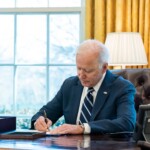“This election is more of a choice over the fate of Erdoğan than for Turkey. From his point of view, Erdoğan is “obliged and condemned” to win this election. Therefore, he may do anything that this conviction requires. In short, if it wants to win, the “Table of Six” must work harder and with vigilant attention until the last moment.”
We are less than a month away from the double election that will decide the fate of our country for the foreseeable future. Although the heat of the election campaign has not yet reached its usual fever pitch, the balance seems to have settled sufficiently for us to make predictions about the outcome of the elections.
Let me argue right away: Objectively speaking, there is no clear victory on the horizon for either the government or the opposition.
When it comes to the presidential race, different polling organizations show either Kılıçdaroğlu or Erdoğan one or two points ahead, with the support for each hovering around 40-45 percent. This suggests that if one of the candidates fails to make a significant move in the coming weeks, the presidential election will go to a second round.
In the meantime, in the face of some data showing that Kılıçdaroğlu is behind Erdoğan, it may be argued that those who argued it was wrong for the Table of Six to nominate Kılıçdaroğlu were right.
I disagree with this view. Aside from the fact that the data may change over time, the difficult transition period that will come into effect if the opposition wins will require a president who is not necessarily a “bright” or popular figure, but the leader of a party—especially a party that is the largest component of a large political alliance.
I do not say this because Kılıçdaroğlu is the presidential candidate of my heart. He is not. I say this because this is the most reasonable and fair option under the current circumstances. The issue is independent of my or anyone else’s personal sympathies or antipathies, and there are some objective reasons that make Kılıçdaroğlu’s candidacy almost mandatory.
First and foremost, a political coalition which, if it comes to power, will have to manage the transition to a parliamentary regime and implement a comprehensive program to solve the country’s problems—which are comprehensive—can only be led by a politician who can mobilize his own party and secure the support and contribution of its partners.
Incidentally, Ekrem İmamoğlu or Mansur Yavaş, who have not yet proven to be leaders on a national scale, could not fulfil this task, regardless of their popularity or their personal or local administrative abilities.
Another surprising aspect of the presidential election is that Muharrem İnce’s support has reached 5 percent—even higher in some polls.
If the situation continues like this, together with the fourth candidate’s (Sinan Oğan) vote of around 2 per cent, this would eliminate Kılıçdaroğlu’s chances of being elected in the first round.
Muharrem İnce’s performance at this level should not have surprised us. This is because there is still a considerable nationalist-secularist segment within the CHP’s voter base that he appeals to.
We should have expected that this segment may be “uncomfortable” with the conservative (and in their eyes “religious”) components of the “Table of Six,”on the one hand, and the pro-Kurdish HDP’s support for Kılıçdaroğlu’s candidacy on the other. There are also those among this group who would not want to see Kılıçdaroğlu as the president of the Republic of Turkey because of his Kurdish identity.
In the meantime, a segment of voters approaching 10 percent have not yet decided who they will vote for in the presidential election. This suggests that the “undecideds” might hold the key to who will be elected president.
From the opposition bloc’s point of view, the worst thing is that Kılıçdaroğlu as the presidential candidate will not be attractive enough to this undecided group, a large portion of which we can assume are former AKP voters.
It must also be admitted that Tayyip Erdoğan as a presidential candidate has other advantages over Kılıçdaroğlu. Foremost among these is the political polarization of the electorate in Turkey, aided by the efforts of Erdoğan and his party so far.
The partisan, pro-AKP media has been encouraging this polarization from the beginning, and unfortunately the opposition media has also fed this trend recently.
This situation makes it extremely difficult, if not impossible, for the opposition to influence the AKP-MHP voter base. This electorate has almost completely closed its ears to the voice of the opposition.
Another advantage Erdoğan has over Kılıçdaroğlu is that he is using the entire state apparatus to his advantage in the election campaign.
The old practice of applying electoral bans to the government is now a thing of the past. In this way, Erdoğan not only tries to discredit the opposition candidate, but also controls media coverage of him, especially through the state broadcaster TRT.
Unfortunately, the AKP-MHP front can even use the judiciary for its own political purposes. All this suggests that Erdoğan still has a chance of winning, despite the fact that the country is in dire circumstances under his leadership.
Finally, there is one more reason he may win. This election is more of a choice over the fate of Erdoğan than for Turkey. From his point of view, Erdoğan is “obliged and condemned” to win this election. Therefore, he may do anything that this conviction requires.
In short, if it wants to win, the “Table of Six” must work harder and with vigilant attention until the last moment.
This article was first published by Diyalog and has been translated by FTP.
The views and opinions expressed above are the author’s and do not reflect those of the Free Turkish Press.


